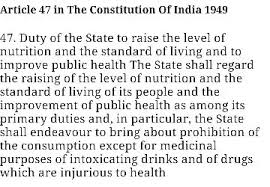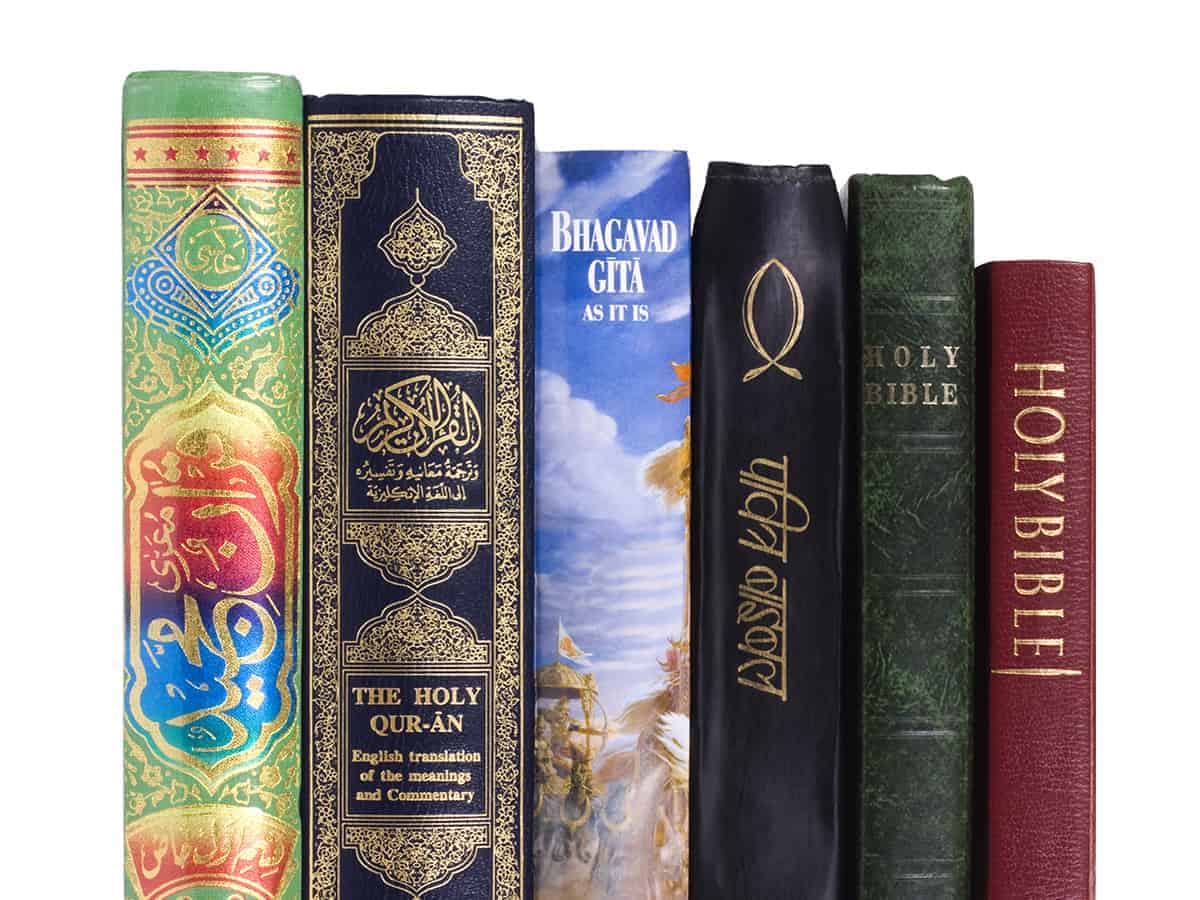
The Qurán is Scripture. It is binding on those who believe, i.e., are Muslims. Qur’an 28:85 :
Qur’an 2:219 :
Literally, khamr خَمْرُ , that which covers the intellect, includes every intoxicant whether a drink, a weed a person smokes, etc. Anything that overcomes the mind is intoxicant. When intoxicated a person cannot distinguish between right and wrong, harms himself and others. Therefore, there’s a law against drunk driving, for accidents (consequences of drunkenness) harm people, are responsible for many other ills of society, from rape, molestation to murder. Hence, the logical basis for prohibiting liquor is discernible. Our Constitution in Article 47 declares “the State… shall endeavour to bring about prohibition of consumption (except for medicinal purposes) of intoxicating drinks…”

The Quran provided the logical basis for legal prohibition which framers of the 1950 Constitution made mandatory: Art. 37 preceding 47 declares “the provisions… shall not be enforceable…but the principles therein laid down are nevertheless fundamental in governance of the country and it shall be duty of the State to apply these principles in making laws.” That we still do not have prohibition is a different matter, but the above illustrates the farsightedness and current relevance of a Quránic revelation of centuries ago.

The word maysir مَيْسِر in the aayath was earlier translated as gambling, the then prevalent method of acquisition of easy money, and hence translators have, as I understand, adhered to that translation. Literally however, it means any method to acquire wealth without legitimate effort creating entitlement. Muslims are taught to do ehsaan with others, be considerate, and display excellence of conduct, etc., and unfair persons involved in maysir cannot be generous or saaleh. In maysir, one looks for ways to acquire another’s asset, i.e., acquire unearned wealth, which hurts him whose entitlement that wealth is. It’s consequences harm people, are destructive of justice.
Qur’anic Revelation dates back to about 630 CE, i.e., about 1390 years in the past. The Indian Penal Code, of 1860, 160 years in the past, vide sec. 23, defined “Wrongful gain” as gain by unlawful means of property to which the person gaining is not legally entitled, and “Wrongful loss” as the loss by unlawful means of property to which the person losing it is legally entitled. It elaborates saying “a person is said to gain wrongfully when such person retains wrongfully, as well as …acquires wrongfully and lose wrongfully when such person is wrongfully kept out of any property, as well as …is wrongfully deprived of property.”
1230 years before the IPC, the Qur’an declared it as wrong. That we still have prohibition of wrongful gain is a tribute to the farsightedness and current relevance today of Quránic Revelation of centuries ago. This amazing Scripture people of questionable intellect call a terrorism manual. We will ignore them, and move on, for Islam is progressive and the Qur’an does not dwell on negative aspects save to identify and advise against them.
In organisations, employees dress consistently with position, behave with dignity and courtesy, as otherwise they risk removal. The image of an organisation is carried by field operatives as ambassadors of what it represents, and ambassadors of Islam must behave, dress and conduct themselves in accordance with the standard which reflects what the teachings of Islam stand for. If Islam requires its ambassadors to dress respectably, non-provocatively, behave with decorum, deal fairly, stand for justice, etc., they must comply. In conduct therefore, we Muslims ought not to indulge ourselves but be alertly responsive to what is expected of us as representatives of Divinity on earth. If people chose to violate mandatory injunctions of what their religion requires they no longer qualify as adherents for, by inconsistent, aberrant or deviant conduct they project a wrong picture of, and hence themselves do violence to, their religion, be it Islam, Christianity or Hinduism’s Sanatan Dharma as way of life. Adherents of every faith must honour the highest standards what they claim to follow, teaches.

Narratives in scriptures are not stories to entertain. They are lessons in life, examples for humankind to reflect on, learn from and emulate. From hunter-gatherer days, humankind has come a long way, and the insecurity and apprehension of “what would others do to me” has given way to what we as a family can do for each other ensuring the benefit of all.
Exodus 20:15 “Thou shalt not steal” does not mean don’t pick pockets : it means do not take what is not yours by right. In the book of Leviticus, the prohibition of stealing inclusively adds fraud in matters of negotiating trade. Henry George in The Crime of Poverty : Speeches and Articles 1877 to 1890 builds on the same theme : no maysir : you cannot take what you are not entitled to. Sikh examples abound. Guru Nanak takes it to an added dimension, preferring to stay at a poor carpenter’s home declining rich merchant Bhagchand’s invitation : not only would he never take anything of another’s, he would not even partake of the best of food if it is from ill-gotten income (SGGS, 146). Seekers of halaal food will tell you it ceases to be halaal if the money that buys it is not. Now another text, the Ramayana.
चतुर्दश हि वर्षाणिरामे प्रव्राजिते वनम् | प्रजाभावगतस्नेहः स्थिरः पुत्रो भविष्यति || ९-२-२१ “Send away Rama to the forest for fourteen years, son Bharat will get enshrined in hearts of the people and get established in the Kingdom.”
In conversation with those aware of Hindu scripture, I learn Ram, exiled by Dasarath under pressure of his wife for fourteen years, the then limitation period at expiration of which she expected an absent Ram would lose vested rights to the throne, sees his step-brother Bharat rebel even against Sovereign command. Declining unearned rights, handed a fault-free opportunity to usurp a Kingdom, Bharat refuses, choosing instead to officiate as Ram’s representative, Ram’s footwear symbolically placed on the throne. Many ruling and other politicians are of the Hindu faith. What does Bharat, by example of conduct, tell them is their duty? Not to usurp rights of others. To take power (the throne) as a trust, not occupy it without entitlement, recognise the throne as the right of citizens, demonstrate from conduct they are but representatives mandated to serve those whose votes put them there. When Ram returned, what do we have Bharat doing? Any mention of him wanting to continue in power? Saying “Sorry, citizen, you’ve been away long, we now have changed rules, and I am King?” Not only no, we find him fading away in narratives, no longer of political significance. He had preserved the entitled person’s position intact, handed it over, his fiduciary duty honourably discharged.

Note Dasarath is King, wields Sovereign power, dispenses justice. Note Bharat has the opportunity of a lifetime, even Sovereign justice lending support. But no thank you, an opportunity of a lifetime stands declined as wrongful gain, or maysir. Even the support of Sovereign justice stands snubbed : “I shall not take what is not mine.” If today the Courts rule in one’s favour, would one walk away from a decree declining a windfall?
Taking the cue from Bharat, what ought to happen when a person disentitled to an office, whether of Chowkidar or Choudhry, Judge or Jawan, Mahant or Muthawalli, Pandit or Parliamentarian, is handed that office? Handed position when better entitled persons merit the same, what ought promoted candidates to do? When verdicts of the justice establishment make errors of (or improper) judgements, what is the duty of the disentitled beneficiaries?
Society needs values, ethics, morals and principles taught again in schools. More importantly, it desperately needs leaders to exemplify by conduct what an upright life is. As one mentor notes, “children hear with their eyes”. Actions speak, words being mere surrounding static. The philosophical “The eyes shout what the lips fear to say” becomes “The eyes register what the lips have left unsaid”. Valuable sections from syllabi are lobotomized. The dumbing down of an entire generation is on the anvil. Darker academia loom ahead. Creeping towards uncertain times, a nation born in 1947 seeks, in politics and public life of the 2020s, a revival of the lost spirit of maysir, exemplified throughout thousands of years.
Shafeeq R. Mahajir is a well-known lawyer based in Hyderabad



